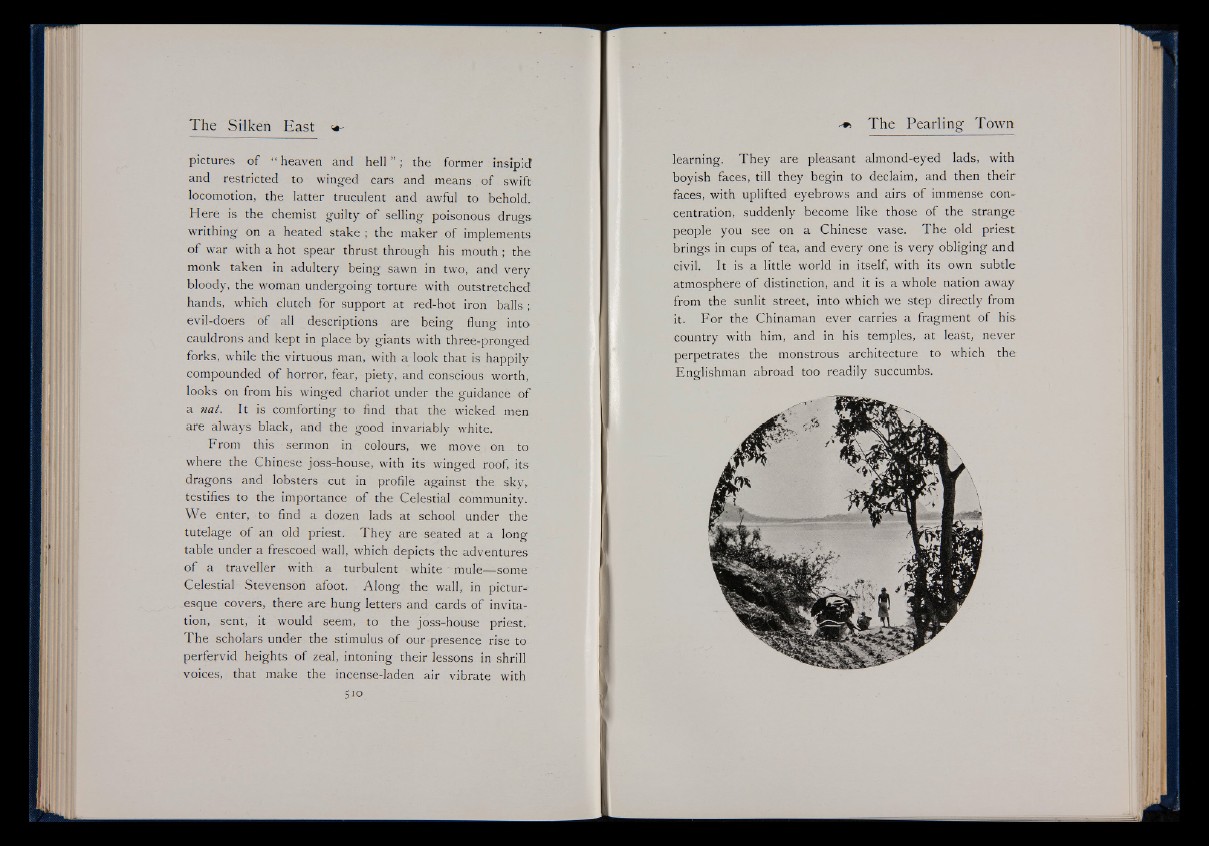
pictures of “ heaven and h e ll” ; the former insipid
and restricted to winged cars and means, of swift
locomotion, the latter truculent and awful to behold.
Here is the chemist guilty of selling poisonous drugs
writhing on a heated stake ; the maker of implements
of war with a hot spear thrust through his mouth ; the
monk taken in adultery being sawn in two, and very
bloody, the woman undergoing torture with outstretched
hands, which clutch for support at red-hot iron balls ;
evil-doers of all descriptions are being flung into
cauldrons and kept in place .by giants with three-pronged
forks, while the virtuous man, with a look that is happily
compounded of horror, fear, piety, and conscious worth,
looks on from his winged chariot under the guidance of
a nat. It is comforting to find that the wicked men
are always black, and the good invariably white.
From this sermon in colours, we move on to
where the Chinese joss-house, with its winged roof, its
dragons and lobsters cut in profile against the. sky,
testifies to the importance of the Celestial community.
We enter, to find a dozen lads at school under the
tutelage of an old priest. They are seated at a long
table under a frescoed wall, which depicts the adventures
of a traveller with a turbulent white - mule—some
Celestial Stevenson afoot. Along the wall, in picturesque
covers, there are hung letters and cards of invitation,
sent, it would seem, to the joss-house priest.
The scholars under the stimulus of our presence rise to
perfervid heights of zeal, intoning their lessons in shrill
voices, that make the incense-laden air vibrate with
5io
learning. They are pleasant almond-eyed lads, with
boyish faces, till they begin to declaim, and then their
faces, with uplifted eyebrows and airs of immense concentration,
suddenly become like those of the strange
people you see on a Chinese vase. The old priest
brings in cups of tea, and every one is very obliging and
civil. It is a little world in itself, with its own subtle
atmosphere of distinction, and it is a whole nation away
from the sunlit street, into which we step directly from
it. For the Chinaman ever carries a fragment of his
country with him, and in his temples, at least, never
perpetrates _ the monstrous architecture to which the
Englishman abroad too readily succumbs.